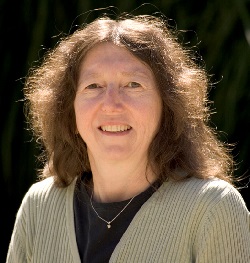'Information Seeking and Sensemaking from Libraries, the Web, and Beyond'
Susan Dumais
Technical Fellow and Director of the Microsoft Research Labs in New England and New York City, USA, and in Montréal, QC, Canada
and
Adjunct Professor at the University of Washington, USA
Tuesday, 24 June 2025, 18:00 Central European Summer Time - CEST (Gothenburg, Sweden)

Abstract
In just a few decades, search has gone from being an arcane skill to something that is a core fabric of everyday life. Today people use search to find a wide variety of information, monitor news and social media, understand medical conditions, learn new skills, buy things, etc. Thus, it is increasingly important to provide an interdisciplinary and user-centered perspective on information systems that both enables people to articulate their information needs and make sense of results, and develops new interaction techniques and algorithms to support this.
The keynote will summarize previous research and systems that mitigate the discrepancy between the vocabulary that authors use and how searchers express their information needs, illustrate the importance of representing context to improve search success, and look forward to new types of information systems that use richer natural language dialogs and proactively anticipate information needs.
SHORT BIO
Susan Dumais is a Technical Fellow and Director of the Microsoft Research Labs in New England, New York City and Montréal QC, and an adjunct professor at the University of Washington. Prior to joining Microsoft, she was a Member of Technical Staff at Bell Labs. Her research is at the intersection of human-computer interaction, information retrieval, and ML/AI. A common theme that runs through her work is the importance of understanding and improving information systems from an interdisciplinary and user-centered perspective. She is a co-inventor of Latent Semantic Analysis, a well-known word embedding technique, which was designed to mitigate the disagreement between the words that authors use in creating content and those that searchers use to find information. Her research spans a wide range of topics in information systems, including email spam filtering, user modeling and personalization, context-aware information systems, temporal dynamics of information, and large-scale behavioral interactions. Her work has shaped several widely used Microsoft products and services including Bing, Windows search, Outlook, SharePoint, and Office Help), and she has published widely in the fields of information retrieval, human-computer interaction, and AI.
Susan is an ACM Fellow, was elected to the CHI Academy, the SIGIR Academy, the National Academy of Engineering (NAE) and the American Academy of Arts and Sciences (AAAS). She received the ACM Athena Lecturer Award for fundamental contributions to computer science, the ACM SIGIR Gerard Salton Award for lifetime achievement in information retrieval, the Tony Kent Strix Award for outstanding contributions to information retrieval, the ACM SIGCHI Lifetime Research Award for lifetime achievement in human-computer interaction, and the lifetime achievement Award from Indiana University Department of Psychological and Brain Science.


